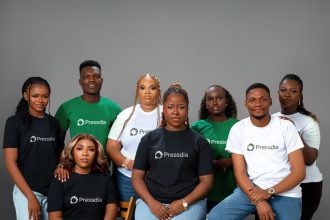- Abuja-based lawyer Nwa Okpoko has cautioned Nigerians against making or sharing defamatory statements online, stressing that provocation or “he started it first” is not a legal defence.
- He explained that while insults may be unpleasant, false accusations such as calling someone a thief or abuser can amount to criminal or civil defamation.
- Okpoko warned that reposting or commenting on defamatory content makes one equally liable, and adding words like “allegedly” offers no protection.

Abuja-based lawyer Nwa Okpoko has issued a stern warning to Nigerians, especially social media users, about the dangers of crossing the line between insults and defamation.
No Defence in “He Started It First”
Okpoko explained that when it comes to criminal or civil defamation, there is no such thing as provocation or justification based on who started an argument.
The law, he said, focuses strictly on the exact words used and the meaning they convey, not on who insulted first.
He added that if someone calls you a fool and you respond by calling them a thief, you could be held liable for defamation, even though you were provoked.
Insults vs. Defamatory Statements
The lawyer highlighted the difference between insults which are unpleasant but not crimes and defamatory statements, which can lead to legal action.
For example, calling someone a “foolish old man” is insulting but not illegal.
However, accusing that same person of domestic violence or fraud is defamatory, as such claims can damage reputation unless proven true.
He explained further that calling a woman “old cargo” is an insult, but adding “prostitute” makes it defamatory regardless of what she may have said first.
Reposting or Commenting Can Get You Sued
Okpoko warned that defamation laws don’t only apply to those who create false or damaging content.
Anyone who reposts, shares screenshots, or comments in a way that spreads the same defamatory message can also be sued.
He stressed that a victim has the right to ignore the original poster and go after someone with a bigger following, especially if their account helped spread the false information.
“Allegedly” Won’t Protect You
The lawyer dismissed the popular belief that adding “allegedly” shields people from legal responsibility.
According to him, this offers no real protection and is comparable to taking unnecessary medication after unprotected sex — ineffective and risky.
Everyone Is Traceable
Okpoko noted that anonymity offers little protection.
He warned that with the right motivation, anyone in Nigeria can be found, including those hiding behind troll or burner accounts.
Legal Education for Social Media Users
The lawyer concluded by saying he plans to regularly share legal insights to help Nigerians understand the limits of online speech and avoid unnecessary legal trouble.


















